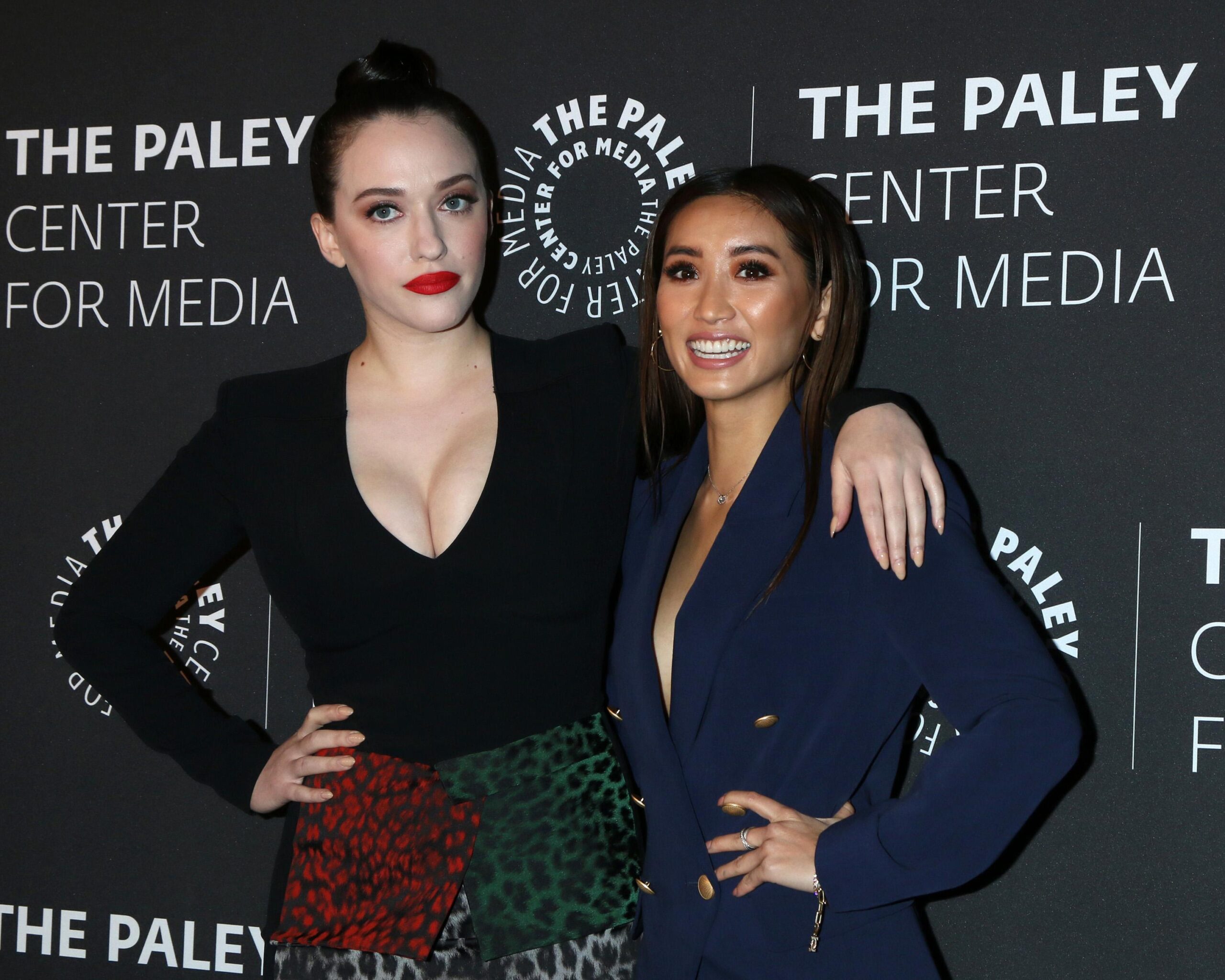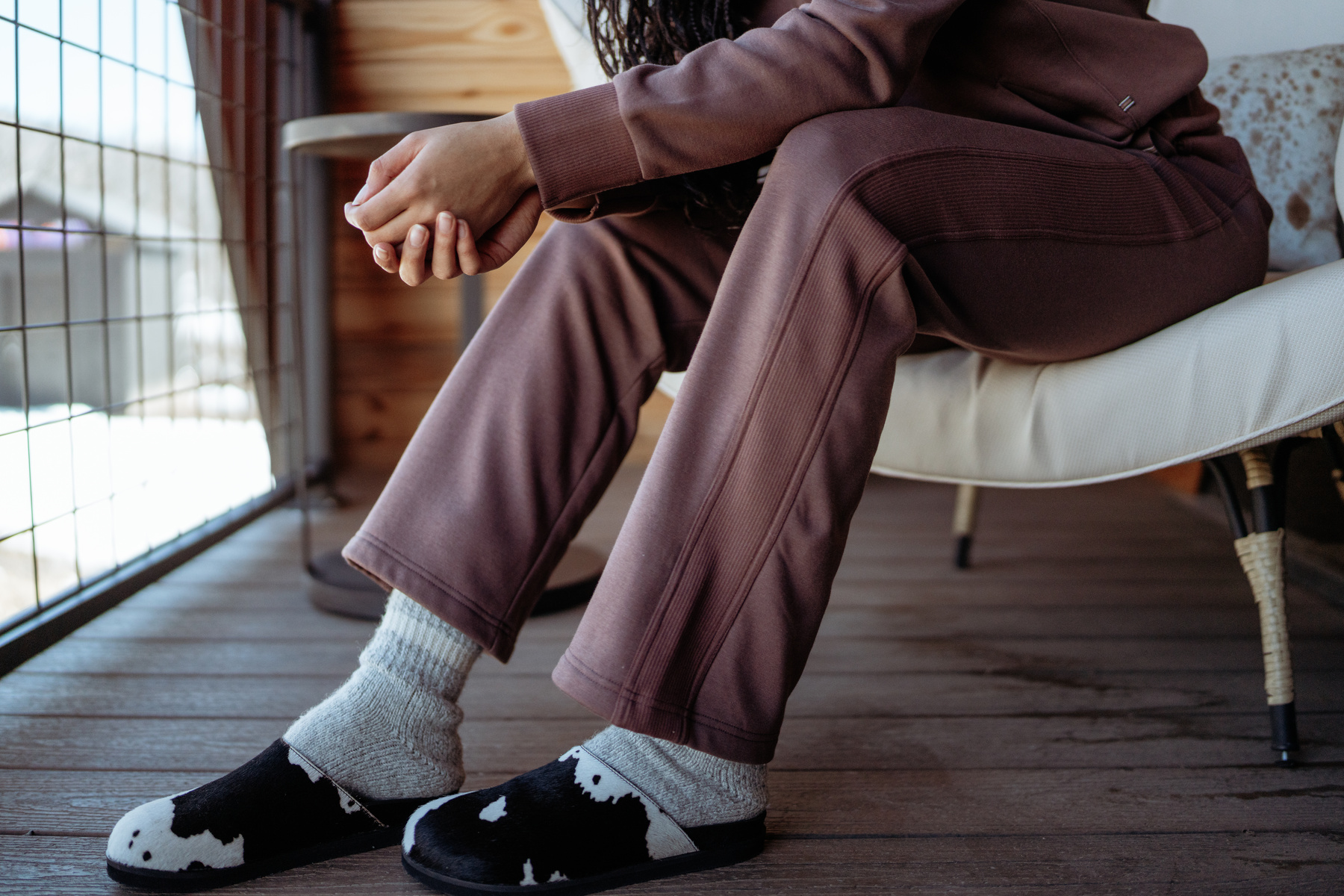CULTURE
Scandal Scrapbook: Dear Twitter, It’s Okay If You Mistook Jeannie Mai for Brenda Song
12 Apr, 21

Kat Dennings, Brenda Song at the The Paley Honors
By Kathy Hutchins (Shutterstock)
In case you had no childhood and don’t know, Brenda Song is a 33-year-old actress known for playing early prototypes of the manic pixie dream girl on kid’s shows like Nickelodeon’s 100 Deeds for Eddie McDowd and Disney Channel’s The Suite Life of Zack & Cody.
Brenda Song is NOT, however, a 42-year-old racist banshee who screeches at her co-hosts on the talk show The Real: That’s Jeannie Mai. In 2019, Twitter did not compute the difference between these two Asian women, despite their different ethnic backgrounds.
Let’s hop into our time machine to ask the unthinkable: Have we as a society made…progress?
For a strange moment in 2019, Brenda Song became a trending topic with over 20k tweets shortly after rapper Young Jeezy confirmed long-standing rumors that he was dating Jeannie Mai on Instagram (as of March 2021 the couple is now married). Why? Because Mai has a history of fetishizing black men and was formerly married to a white, racist Trump supporter. And Jeannie Mae has said that the one celebrity she hates to be commonly mistaken for is Brenda Song.
So, after Jeezy confirmed he was dating Mai, a disgruntled fan called out Mai’s history of racist comments by posting, “Here’s Brenda Song’s racist ass saying she only f**ks Black men but married white. I wish her and Young Jeezy all the best.”
The commenter attached a clip of Mai declaring her love of Black men on The Real, with the bizarrely tone deaf caveat: “For me, dark meat on the side, white keeps me mean and lean. You know, that’s why I married a white man.”
While she attempted to smooth over her comment later, she only piled on more cringe-worthy statements: “I like a good brother, I do! I think they’re cute!” She acknowledged the comment sounded “horrible,” but after hearing her attempt to back-pedal, her co-host advised her she was only making it “sound worse, don’t explain it!”
Hordes of commenters quickly pointed out the hypocrisy of calling out Mai’s racist rhetoric while confusing her for another Asian female. Without knowing the joke that Jeannie Mai hates being confused for Song, the comment reads as another drop of ignorance in the bucket of Twitter vitriol.
But plenty of commenters defended the mix-up, even without knowing the context or being in on the joke. In the initial wave of over 20k tweets, those comments boiled down to: “Yeah, but they do look the same… Don’t they?”
It’s mystifying that so many could disagree on the facial similarities of two Asian women. But then again, maybe it’s not. Yes, Song’s parentage is Thai-American and Hmong while Mai’s is Vietnamese and Chinese. Those are distinct, unique cultures, and Asians do not present a monolithic face.
But in America, where Asians only comprise about 5% of the population, representation of Asian faces in the media are still scant. Only 1% of Hollywood’s leading roles are given to Asian actors, and even after Crazy Rich Asians‘ box office success, disparities in mainstream representation (and even pay) still continue.
As a result, while “they all look alike to me” is still a form of coded anti-Asian racism, that confusion is based in systemic erasure and underrepresentation of Asian faces in America. It’s also eerily grounded in the science of how our brains perceive differences when we’re simply not exposed to faces unlike our own.
Simply put: When your face is unlike 95% of the population, people are more likely to confuse you with someone else, because being marginalized in your own country, left out of your country’s textbooks, and reduced to a “model minority” myth means that you’re barely noticed in the first place.
So in that sense, it’s not your fault if you mixed up these women. It’s the result of systemic inequality and severe underrepresentation of POC communities in the media, which has inculcated many of us with dismissive attitudes and blinders towards Asian American women. What we can do, however, is hold ourselves and others accountable — not become apologists for others’ blindness and ignorance.
Of course, the confusion hits very differently in 2021 amidst widely publicized spikes in hate crimes against Asian Americans, following a year of anti-Asian rhetoric from the former President of the United States. And none of this is to say enough about Mai’s comments highlighting the history of racist, anti-Black sentiments woven into Asian communities (because fetishizing Black men as “dark meat on the side” while white men kept her “mean and lean” is just another form of anti-Black racism).
Her comments echoed white supremacy’s calculated divisions between Asian and Black communities as a way to prop up systemic inequality. Scott Kurashige, professor and chair of comparative race and ethnic studies at Texas Christian University, stated to Vox: “The model minority stereotype really isn’t meant to define Asian Americans. Rather, it’s meant to define African Americans as deficient and inferior to white people by using Asian Americans as a proxy or a pawn to serve that purpose.”
He added, “It was never an accurate portrayal of Asian Americans, but actually consciously meant to distort and stereotype Asian Americans.”
So on the one hand, it’s shameful that Brenda Song’s quiet life dating Macaulay Culkin (with whom she recently welcomed their first child, Dakota Song Culkin) and her beloved roles as London Tipton and Wendy Wu had to be dragged into the comments (seriously, boo you, Twitter).
But on a greater scale, the confusion pointed out that American media is still homogeneous to a fault, and racist rhetoric should not be answered with even more racist rhetoric. Optimistically, one would hope that none of these comments (made by Mai or her Twitter haters) would be remotely tolerated today.
*This article was originally published on May 9, 2019 and updated on April 12, 2021.













